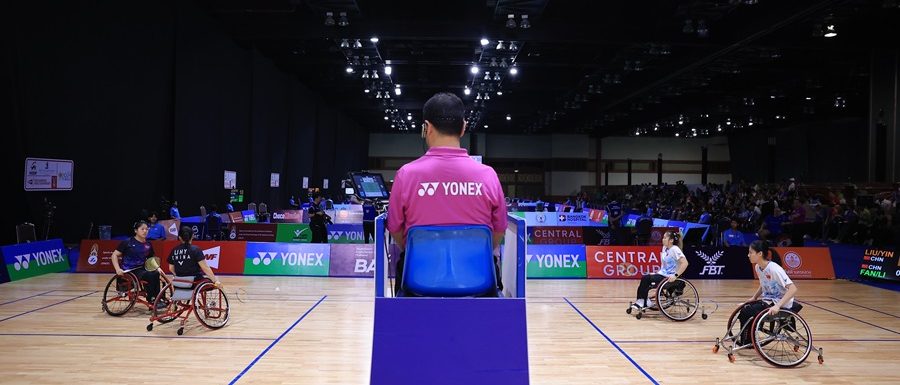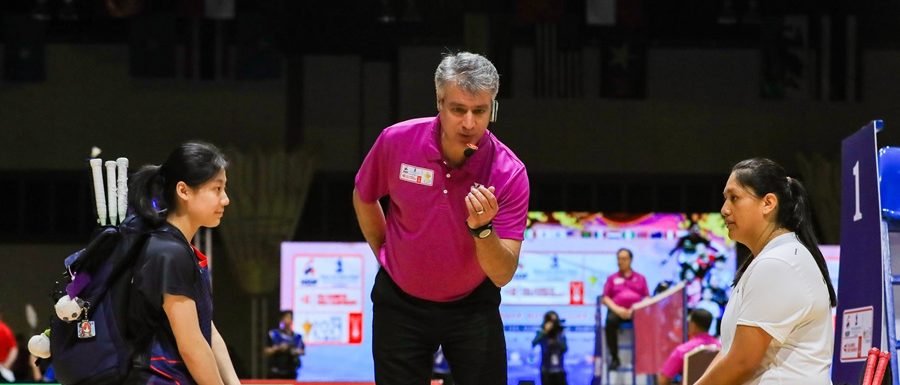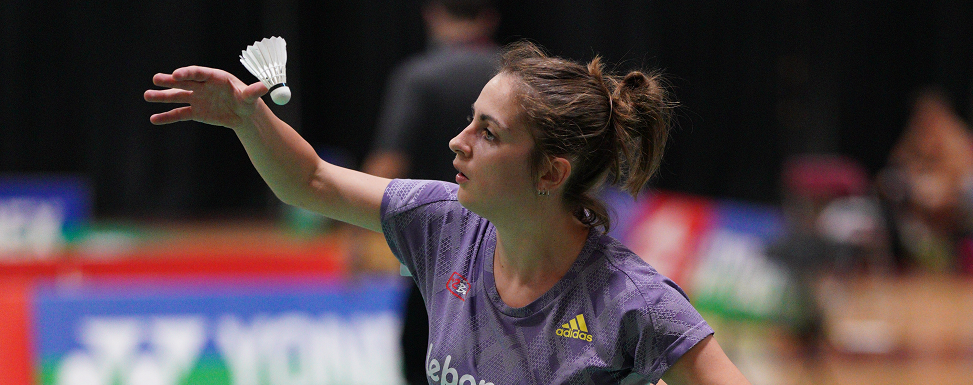Para badminton
Badminton is a Paralympic sport. Badminton made its Paralympic Games debut in at Tokyo 2020 and will also be on the Paris 2024 and Los Angeles 2028 Paralympic Games programme.
The BWF is a member of the International Paralympic Committee (IPC). The IPC recognises the BWF as the world governing body for Para badminton.
Badminton is a sport for all, an accessible sport for boys and girls, men and women and for people with a physical impairment. Badminton is a sport for everyone. BWF is responsible for regulating, promoting and developing Para badminton globally.
BWF promotes a “one sport – one team” philosophy – badminton and Para badminton together.
Main Focus
To regulate, promote and develop the sport globally. This is achieved through partnerships with a range of stakeholders including BWF members, the five Continental Confederations and its commercial and media partners as well as National Paralympic Committees and organisations or support sport for people with a physical impairment.
Para badminton Sport Classes / Events
As in badminton, Para badminton athletes compete in men’s and women’s singles, men’s and women’s doubles and mixed doubles.
Athletes are classified into “Sport Classes” to ensure fairness in competition. In Para badminton there are six Sport Classes.
-
Wheelchair 1 WH 1Players in this class requires a wheelchair to play badminton. Players in this Sport Class usually have impairment in both lower limbs and trunk function.
-
Wheelchair 2 WH 2A player in this class could have impairment in one or both lower limbs and minimal or no impairment of the trunk. Players are required to play on a wheelchair in this class.
-
Standing Lower SL 3In this class a player must play standing. The player could have impairment in one or both lower limbs and poor walking/running balance.
-
Standing Lower SL 4A second standing class where the player has a lesser impairment compared to Sport Class SL 3. The player could have impairment in one or both lower limbs and minimal impairment in walking/running balance.
-
Standing Upper SU 5The players in this class has impairment of the upper limbs.The impairment could be on the playing or non playing hand.
-
Short Stature SH 6These are players who have a short stature due to a genetic condition often referred to as “dwarfism”.
Focuses for Development
Integration
To continue to integrate Para badminton into the badminton structures and systems at the world, continental and national levels.
Participation
To increase the player base globally.
Performance
To increase the quality of elite play to ensure world class performances across all Sport Classes.
Competitions
To have a strong competition structure with international events being hosted regularly in each region.
Technical
To have a comprehensive rules system and well qualified technical officials to implement the rules governing classification and competitions
Values of Sport, Ethics and Fair Play
To implement values- based education programmes and an ‘intelligent’ anti-doping testing programme – both in and out of competition.
Promotion
To raise the visibility of Para badminton internally and externally and to promote badminton as part of a sport for all, a sport for everyone.
Every athlete is classified into one of the six Sport Classes before they can compete at an international level. This ensures that athletes compete in groups which take into account how their physical impairment affects their performance as a badminton player.


























